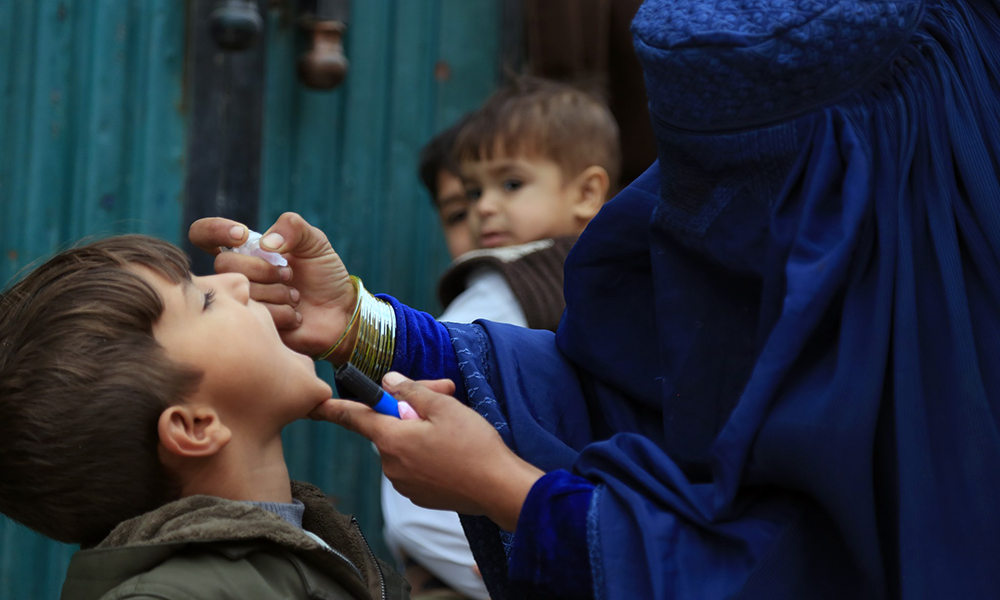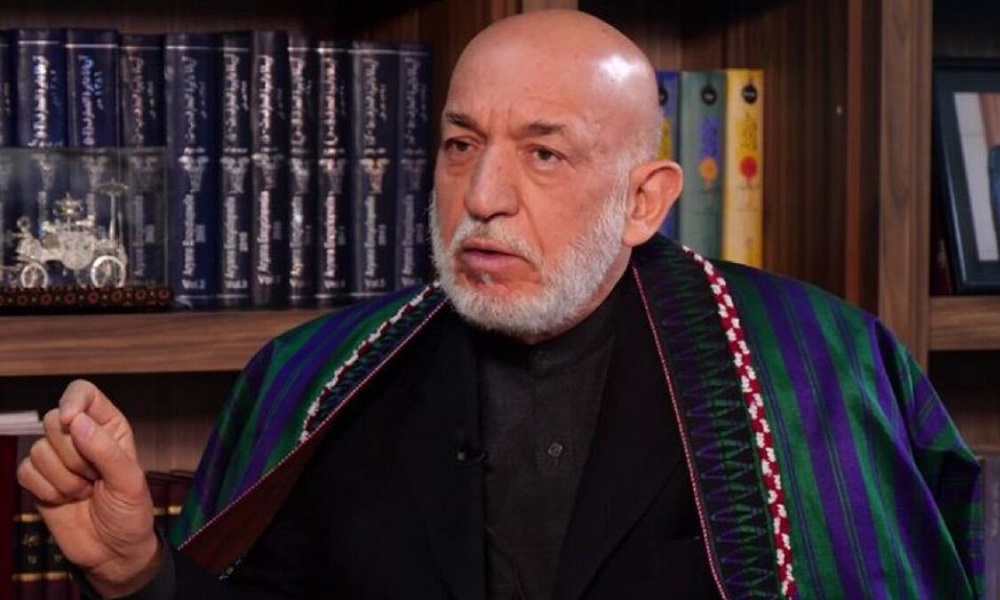Latest News
US looks into having 3 Central Asian states take in at-risk Afghans

The Biden administration is exploring having three Central Asian countries temporarily take in thousands of Afghans who worked with U.S. forces and face threats from the Taliban now that American troops are withdrawing after 20 years, three sources familiar with the matter told Reuters on Friday.
They said Washington is in talks with Kazakhstan, Tajikistan and Uzbekistan about letting in the at-risk Afghan citizens. Two of the sources were U.S. officials and all requested anonymity.
The three sources said an agreement did not appear imminent with any of the countries.
The decision to move at-risk Afghans risks inflaming a sense of crisis in Afghanistan, as fighting between U.S.-backed Afghan forces and the Taliban has surged in recent weeks, with the militants gaining control of large amounts of territory, Reuters reported.
Thousands of Afghan translators and interpreters face threats from the Taliban after working for two decades alongside the U.S. military.
The United States announced plans last week to seek refuge for thousands of vulnerable Afghans in countries outside Afghanistan so their U.S. visa applications could be processed from safety, but Washington did not specify where they would go.
White House spokeswoman Jen Psaki provided no further details on Friday, Reuters reported.
"One of the reasons that I'm not going to get into security details about what third country they might go to, and how many, is exactly for that reason, but certainly our timeline is to relocate these individuals to a location outside of Afghanistan before we complete our military drawdown," Psaki said.
President Joe Biden has said those who helped the United States will not be left behind, and on Thursday a senior Republican lawmaker said plans to evacuate at-risk Afghans will include their family members for a total of as many as 50,000 people.
"We are identifying a group of Special Immigrant Visa (SIV) applicants who have served as interpreters and translators, as well as other at-risk categories who have assisted us. They will be relocated to a location outside of Afghanistan before we complete our military drawdown by September, in order to complete the visa application process," a senior administration official said.
On Thursday, U.S. Secretary of State Antony Blinken met his Tajik and Uzbek counterparts. The State Department said in readouts of the meetings that Afghanistan was discussed but provided no further details.
Washington agreed to withdraw in a deal negotiated last year under Biden's predecessor, Donald Trump. Biden rejected advice from military leaders to hang on until an agreement could be reached between the insurgents and Afghanistan President Ashraf Ghani's U.S.-backed government.
Biden told Ghani in Washington last week the Afghans must decide their own future. Ghani said his job was now to "manage the consequences" of the U.S. withdrawal.
Latest News
A new polio vaccination campaign is set to launch in Afghanistan
Afghanistan and Pakistan are the only two countries in the world where polio has not been eradicated.

The “Afghanistan Polio-Free” organization announced that a new round of polio vaccinations will begin on Monday, December 23, in various provinces of Afghanistan.
The organization did not specify which provinces will be targeted or how long the vaccination campaign will last.
Afghanistan and Pakistan are the only two countries in the world where polio has not been eradicated.
On December 4, 2023, the World Health Organization (WHO) issued a statement reporting a 283% increase in polio cases in Afghanistan. According to the WHO, the number of positive environmental samples for wild poliovirus type 1 in Afghanistan in 2024 reached 84, compared to 62 cases in 2023.
The Ministry of Public Health claimed in November 2024 that no new cases of polio had been reported in Afghanistan for the year.
Latest News
G7 envoys urge national dialogue for lasting stability in Afghanistan

Special Representatives of the Group of Seven (G7), including the European Union, have emphasized the importance of a national dialogue for achieving long-term stability in Afghanistan.
Following a meeting on Afghanistan in Geneva, Switzerland, G7 special envoys issued a joint statement calling for the restoration of women's rights and urging the Islamic Emirate to fight terrorism.
The statement reads: "Achieving sustainable peace and stability requires credible governance that represents all segments of Afghan society."
The representatives also expressed concern over the IEA’s decision to ban girls from attending medical institutes, warning that it will have devastating consequences for the citizens, particularly mothers and their infants.
The statement described this ban as unacceptable and called on the Afghan authorities to lift it immediately.
Earlier, countries and international organizations had called for the removal of restrictions on the education and employment of women and girls, emphasizing the need for a national dialogue.
In response to these concerns, IEA has repeatedly stated that it will not allow interference in the internal affairs of the country.
The G7 special envoys also expressed their concern about the recent terrorist attacks in Kabul and the surrounding region, warning that terrorism remains a serious threat to Afghanistan's security. They confirmed the actions of the IEA against Daesh but stressed the need for more decisive measures.
Latest News
Afghanistan’s bright future lies in educating girls: Karzai

Hamid Karzai, the former president of Afghanistan, says the demand of Afghan girls for the reopening of schools and universities is their fundamental right and adds that Afghanistan cannot have a bright future without ensuring access to education for girls.
In a statement on his X (formerly Twitter) account, Karzai said: "The demand and voice of our country’s girls for education and knowledge is a rightful one and crucial for a prosperous Afghanistan."
He further emphasized, "Empowering the youth—both girls and boys—is the only way to achieve self-reliance, break the cycle of poverty, and drive the development and prosperity of society."
Karzai underscored that education is vital for Afghanistan’s growth and development, expressing hope that the doors of schools and universities for girls will be reopened as soon as possible.
-

 Sport5 days ago
Sport5 days agoLanka T10: All three matches abandoned due to rain
-

 Latest News5 days ago
Latest News5 days agoIndia hoping to import coal and marble from Afghanistan
-

 Sport4 days ago
Sport4 days agoZimbabwe’s opening ODI against Afghanistan abandoned
-

 Latest News5 days ago
Latest News5 days agoJapan announces $27.5 million aid package to Afghanistan
-

 Latest News1 day ago
Latest News1 day agoAfghan men must stand with women to support viable future of country: US envoy
-

 Latest News3 days ago
Latest News3 days agoTwo horror accidents on Kabul-Kandahar highway leave 52 dead
-

 World3 days ago
World3 days agoNorth Korean troops suffer 100 deaths, struggling in drone warfare, South Korea says
-

 International Sports4 days ago
International Sports4 days agoLanka T10: Kandy Bolts in at 4th spot in playoffs after thrilling day
























